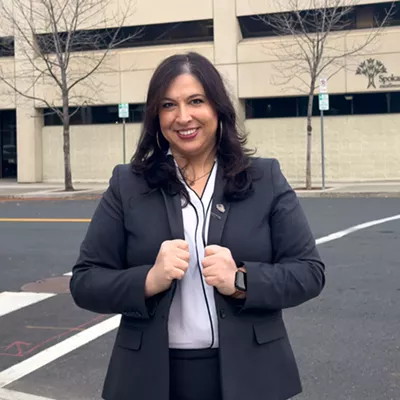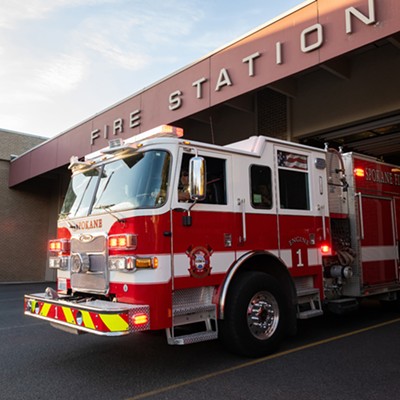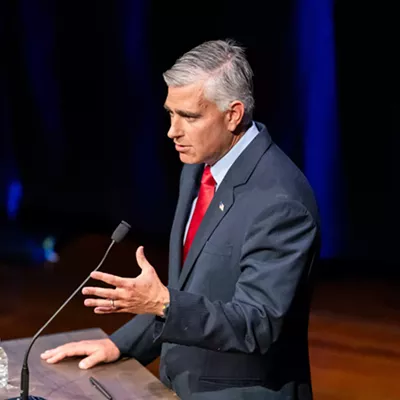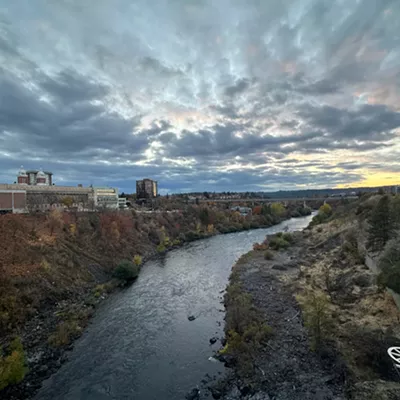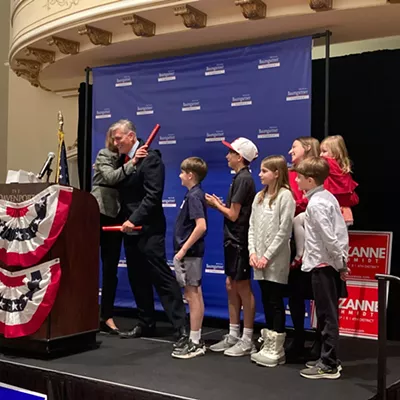After last week's special election, school districts across Washington are wondering how to move forward after only one-third of the 21 proposed school bonds passed. The rest, even those that were approved by a majority of voters, failed.
This includes all five school bonds that Spokane County voters in various school districts weighed in on. Even though each bond garnered more than 50% of the vote, bond measures require a 60% supermajority to pass.
Reaching that threshold hasn't usually been an issue for Spokane Public Schools — at least in recent history. Before last week, voters hadn't turned down an SPS bond proposition in half a century. In the past 20 years, the district successfully passed four bond proposals, raising more than $1.1 billion (which came with an additional $150 million in state-matching funds).
In 2018, SPS asked its voters to approve a $495.3 million bond (it's largest ask ever) to fund construction of three new middle schools, replacement of three others, updates to some schools' aging infrastructure and construction of ONE Spokane Stadium in downtown Spokane. Despite rejecting the downtown stadium location in an advisory vote, voters still passed the 2018 bond measure with nearly 70% approval.
This year, SPS asked voters to approve a $200 million bond that would've funded replacement of two elementary schools (Adams and Madison) and significant updates to North Central High School. It also would've funded the construction planning for future school replacements. Though 56% of voters approved of it, the bond failed — making it the largest district in the state to have a bond fail this year.
The other school bonds on the February ballot in the county were in the Cheney, Deer Park, Riverside and West Valley school districts. Each failed despite garnering between 50% and 54% of the vote.
It's not a total loss though. All but a few of the school levies on the ballot in Spokane County passed. Tax levies require only simple majority of "yes" votes to pass.
'DEVASTATING'
"Obviously the results were quite disappointing," says Beth Nye, principal of Adams Elementary School. "The word I've been using is 'devastating.'"
Adams Elementary was one of the two schools that would have been replaced if this year's bond had been successful. According to Nye, it's the last school on the South Hill that hasn't been modernized or replaced.
As it stands, Adams isn't compliant with ADA standards because it doesn't have an elevator. This means students living within the school's boundaries who are unable to traverse the school's multiple floors must attend another elementary school.
"We were all looking forward to this bond passing, which would lead us straight into our replacement starting in June," Nye says. "Now, we're dealing with that disappointment, and we can hopefully use this as a moment to help [the community] recognize that our schools do need to continue to have these funds so that we can make sure our facilities are kept up and modern for our students."
All the pre-work for the school's replacement was completed with funds from the $145 million 2015 bond, according to Ryan Lancaster, the district's spokesperson.
"We were able to fund through that bond all of the design work and the site planning, so they were pretty much shovel ready," he says. "That whole project would have gotten off the ground pretty quickly."
There is about $50 million left over from previous bonds, which Lancaster says will help cover some of the smaller projects that the district had planned. It won't include any projects at Adams.
"Typically, we go through a process every year where we have a chance to point out some of the smaller projects that we would benefit from," Nye says. "But because Adams was on the list for a replacement, we were not focused on any smaller projects."
The SPS board is scheduled to meet this week to discuss options for the district and Adams, Lancaster says.
'AWFUL AND UNDEMOCRATIC'
Lancaster thinks that the biggest factors in the bond's failure are the skyrocketing property values alongside the 60% approval threshold that bonds require.
There's not much that school districts can do to affect these property values, so the focus has been on reducing the supermajority requirement that's been in place since 1952. Still, there are many hoops to pass through if that's ever going to change.
"[The supermajority requirement] is a massive barrier, especially since the culture war against public education," says Washington Superintendent of Public Instruction Chris Reykdal. "It's frustrating, and I think it's awful and undemocratic."
"Obviously the results were quite disappointing. The wordI've been using is 'devastating.'"
tweet this
If bonds required only a simple majority for approval, all but three of this year's bond measures in Washington would have passed. Additionally, over the past 10 years, only 45% of school bonds in the state were approved. If the supermajority requirement weren't in place, 72% of the failed bonds would have passed, meaning about 85% of the total bond asks would have passed, according to Reykdal's office.
"It's always important to remember it's not just local taxpayers' funding," Reykdal says. "A lot of state-matching funds won't be going to these districts now."
The state matching funds for the 11 school bonds that won more than 50% of the vote but less than the 60% supermajority totaled $227.1 million, Reykdal stated in a release.
Since the supermajority requirement is embedded in the Washington Constitution, a two-thirds majority vote is needed in both chambers of the Legislature to change the law. Then, if the Legislature did approve the change, the measure would go to state voters — with final passage requiring support from a simple majority.
Those who support having a supermajority threshold for school bonds say that lowering this threshold would be unfair to the taxpayers that the requirement is meant to protect.
"Most taxpayers can see a good plan and they can see a bad plan. Sixty percent protects them," Jeff Daily of Port Orchard, a former South Kitsap School District board member, told legislators earlier this year, according to Crosscut.
Jeff Pack, a representative of Washington Citizens Against Unfair Taxes, also told legislators that they "just want to change the rules to fit your agenda."
While constitutional changes must clear a relatively high hurdle, they're not unheard of. In 2007, the state constitution was amended to allow school levies to pass with only a simple majority, rather than the previously required supermajority.
(This year, SPS passed its $300 million levy with about the same amount of voter approval as its bond. Central Valley School District passed both of its levies with about 52% approval, and Mead School District also passed its levy with almost 53% approval.)
That said, a change to school bond requirements looks unlikely this year. Senate Bill 5823, which would reduce the bond requirement to a simple majority, stalled in the Senate Ways and Means Committee, where it died for the session. ♦






